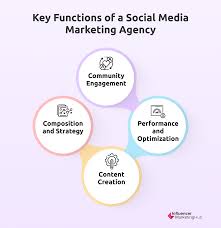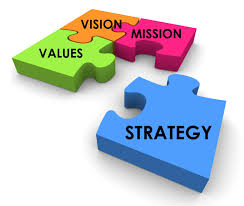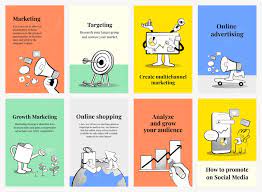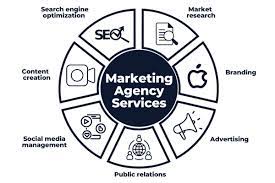Unlocking Success: The Art of Agency Content Creation
The Power of Agency Content Creation
Content creation is a vital component of any successful marketing strategy. In today’s digital age, where consumers are constantly bombarded with information, creating engaging and compelling content is essential to capture their attention and drive meaningful interactions.
When it comes to content creation, agencies play a crucial role in helping businesses craft and deliver impactful messages that resonate with their target audience. Agency content creators are skilled professionals who understand the nuances of storytelling, branding, and audience engagement.
One of the key advantages of working with an agency for content creation is their expertise and experience. Agencies have a deep understanding of market trends, consumer behaviour, and industry best practices, enabling them to develop content strategies that are effective and results-driven.
Furthermore, agencies have access to a diverse pool of talent, including writers, designers, videographers, and social media experts. This multidisciplinary approach allows agencies to create a wide range of content formats tailored to different platforms and audiences.
Another benefit of agency content creation is the fresh perspective they bring to the table. By working with an external agency, businesses can gain new insights and ideas that they may not have considered internally. This outside perspective can help businesses break out of their comfort zone and explore innovative approaches to content creation.
Overall, agency content creation offers businesses a strategic advantage in today’s competitive digital landscape. By leveraging the expertise, resources, and creativity of an agency, businesses can elevate their brand presence, engage their audience effectively, and drive tangible results.
Eight Advantages of Agency Content Creation: Expertise, Innovation, and Enhanced Brand Visibility
- Access to expertise and experience in content creation
- Diverse pool of talent including writers, designers, and videographers
- Fresh perspectives and innovative ideas
- Deep understanding of market trends and consumer behaviour
- Ability to create tailored content strategies for different platforms
- Professional guidance on storytelling and branding
- Efficient management of content production process
- Increased brand visibility and engagement
Five Drawbacks of Agency Content Creation: Cost, Control, Communication, Dependency, and Inconsistency
- Costly
- Lack of Control
- Communication Challenges
- Dependency on External Expertise
- Risk of Inconsistency
Access to expertise and experience in content creation
Access to expertise and experience in content creation is a significant advantage of working with an agency. Agency content creators bring a wealth of knowledge and skills to the table, honed through years of experience in crafting compelling and effective content strategies. Their deep understanding of market trends, audience preferences, and industry best practices enables them to create content that resonates with target audiences and drives meaningful engagement. By tapping into the expertise of agency professionals, businesses can benefit from innovative ideas, strategic insights, and high-quality content that sets them apart in a competitive digital landscape.
Diverse pool of talent including writers, designers, and videographers
One significant advantage of agency content creation is the access to a diverse pool of talent, encompassing skilled writers, creative designers, and talented videographers. This multidisciplinary team brings a wealth of expertise and creativity to the table, allowing agencies to craft compelling and engaging content across various formats and platforms. By leveraging the collective skills and perspectives of these professionals, agencies can deliver high-quality content that resonates with target audiences and helps businesses stand out in a crowded digital landscape.
Fresh perspectives and innovative ideas
One significant advantage of agency content creation is the infusion of fresh perspectives and innovative ideas into a business’s marketing strategy. By collaborating with an external agency, companies can benefit from a diverse range of creative minds that bring new insights and approaches to the table. These fresh perspectives can spark creativity, challenge existing norms, and inspire innovative content solutions that resonate with audiences in unique and engaging ways. Embracing these new ideas can help businesses stay ahead of the curve, stand out in a crowded market, and drive meaningful connections with their target audience.
Deep understanding of market trends and consumer behaviour
One significant advantage of agency content creation is their deep understanding of market trends and consumer behaviour. Agencies possess valuable insights into the ever-changing landscape of consumer preferences, purchasing patterns, and online behaviours. This knowledge allows them to tailor content strategies that resonate with the target audience, ensuring that the content produced is not only engaging but also relevant and impactful. By leveraging their expertise in market trends and consumer behaviour, agencies can help businesses stay ahead of the curve and create content that drives meaningful interactions and builds brand loyalty.
Ability to create tailored content strategies for different platforms
One significant advantage of agency content creation is the ability to develop tailored content strategies for various platforms. Agencies have the expertise to understand the unique characteristics and audience preferences of each platform, whether it’s social media, websites, or email marketing. By crafting content strategies specific to each platform, agencies can maximise engagement and reach, ensuring that the message resonates effectively with the target audience in a way that is most conducive to driving desired outcomes. This tailored approach not only enhances brand visibility but also increases the likelihood of achieving meaningful interactions and conversions across different digital channels.
Professional guidance on storytelling and branding
One significant advantage of agency content creation is the professional guidance it provides on storytelling and branding. Agencies have skilled content creators who understand the art of crafting compelling narratives that resonate with the target audience. By leveraging their expertise in storytelling and branding, agencies can help businesses develop a cohesive and impactful brand narrative that sets them apart from competitors. This guidance ensures that the content produced aligns with the brand’s values, voice, and objectives, ultimately enhancing brand recognition and fostering stronger connections with consumers.
Efficient management of content production process
One significant advantage of agency content creation is the efficient management of the content production process. Agencies have streamlined workflows and established processes in place to ensure that content creation tasks are completed on time and within budget. From ideation to execution, agencies leverage their expertise and resources to manage the entire content production process seamlessly, allowing businesses to focus on other core activities while ensuring high-quality, timely delivery of engaging content that resonates with the target audience.
Increased brand visibility and engagement
One significant advantage of agency content creation is the ability to enhance brand visibility and engagement. By leveraging the expertise of professional content creators, businesses can develop compelling and tailored content that resonates with their target audience. This strategic approach not only increases the reach of the brand across various platforms but also fosters meaningful interactions with customers, ultimately leading to higher engagement levels and a stronger brand presence in the competitive market landscape.
Costly
One significant drawback of agency content creation is the cost involved. For small businesses operating on limited budgets, hiring an agency to handle content creation can be a financial challenge. The fees charged by agencies for their services may exceed what smaller businesses can afford, making it difficult for them to access the expertise and resources that agencies offer. This cost barrier can hinder small businesses from benefiting from professional content creation services and may force them to explore alternative, potentially less effective, in-house solutions to meet their content needs.
Lack of Control
When businesses opt to collaborate with an external agency for content creation, a significant drawback they may encounter is the potential loss of control over the content creation process. Entrusting the task to an agency means relinquishing some autonomy in decision-making and creative direction. Businesses may find it challenging to maintain complete oversight and ensure that the content aligns perfectly with their vision and brand identity. This lack of control can lead to concerns about consistency, quality, and adherence to brand guidelines, ultimately impacting the overall effectiveness of the content produced by the agency.
Communication Challenges
Communication challenges can pose a significant con in agency content creation. Misunderstandings or delays in communication between the business and the agency can impede the smooth flow of the content creation process. Lack of clarity or misinterpretation of requirements can lead to discrepancies in the delivered content, affecting its quality and alignment with the business objectives. Timely and effective communication is essential to ensure that both parties are on the same page and working towards a common goal, highlighting the importance of clear channels of communication and regular updates throughout the content creation journey.
Dependency on External Expertise
One significant drawback of agency content creation is the risk of dependency on external expertise, which can result in a lack of in-house skills development within the business. By constantly outsourcing content creation to agencies, businesses may miss out on opportunities to nurture and grow their internal talent. This overreliance on external resources could hinder the company’s ability to build a strong in-house team capable of developing creative and strategic content independently. It is essential for businesses to strike a balance between leveraging agency support and investing in the continuous development of their internal content creation capabilities to ensure long-term sustainability and growth.
Risk of Inconsistency
One significant con of agency content creation is the risk of inconsistency. Maintaining a cohesive brand messaging and tone across various projects becomes challenging when multiple agencies are engaged. Each agency may have its own interpretation of the brand guidelines, leading to discrepancies in how the brand is portrayed to the audience. This lack of consistency can dilute the brand’s identity and confuse consumers, ultimately impacting the overall effectiveness of the marketing efforts.











